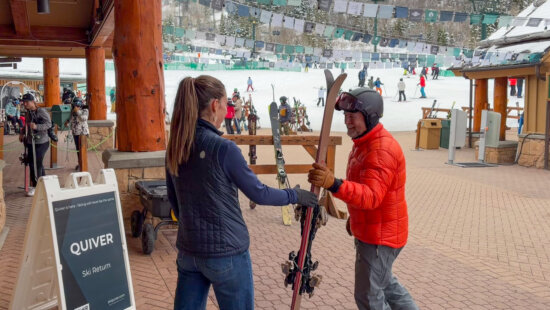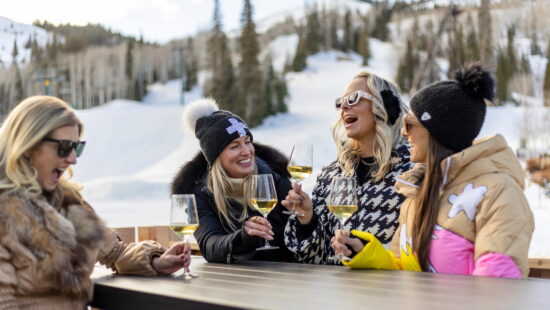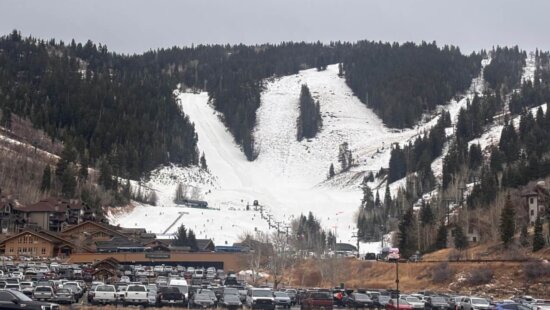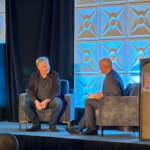Politics
Experts say wildlife and lift could coexist ahead of Deer Valley conditional use permit decision
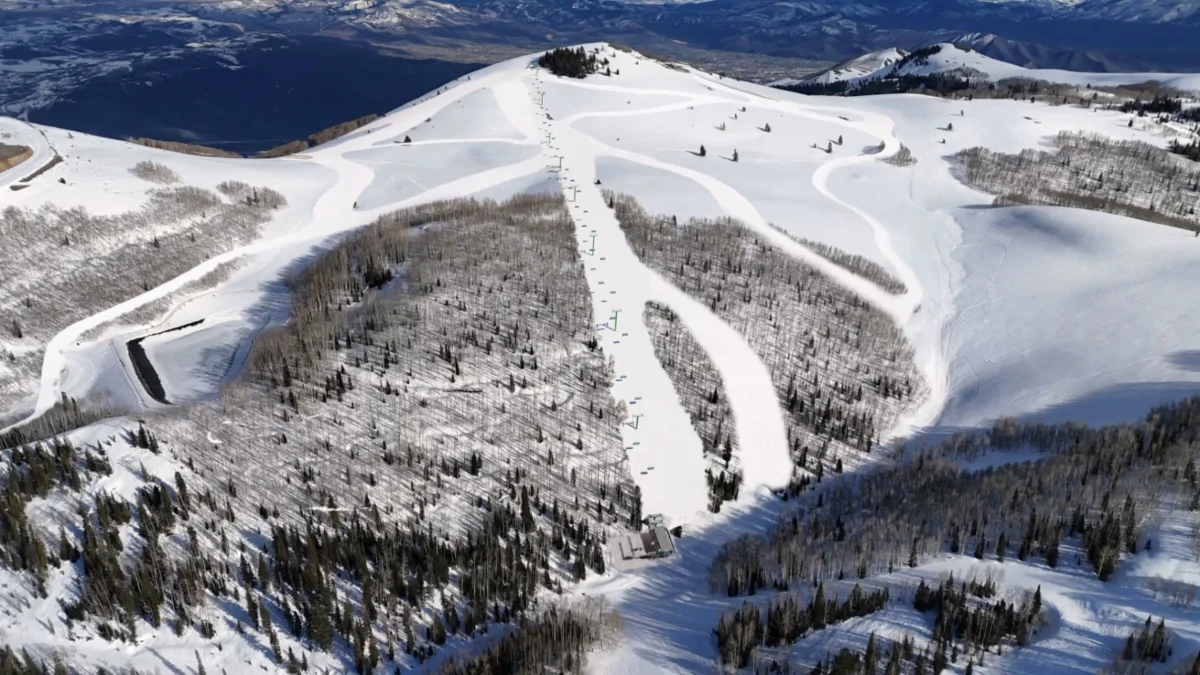
A rendering of the proposed lift corridor and new beginner terrain at Deer Valley's Park Peak. Photo: Park City Municipal
PARK CITY, Utah — On Wednesday, the Park City Planning Commission will decide whether to grant Deer Valley Resort a conditional use permit to build a lift and associated buildings on Park Peak.
After a meeting in April, Deer Valley staff was asked to outline in more detail their plans for wildlife management and skier safety. In addition, the planning commission asked Deer Valley to more substantially justify their request to reclassify the designation of land from “undeveloped” to “developed” open recreational space.
In preparation for the upcoming meeting, Deer Valley hired a wildlife consultant to outline the wildlife species in the project area and potential wildlife impacts from the proposed Lift 7 project. The consultant, Bio West, Inc., concluded that as long as Deer Valley conducts additional on-site habitat investigations and utilizes appropriate impact mitigation measures, the project should not significantly affect wildlife.
“The project area does provide habitat for some of the species; however, the majority of the species would not be utilizing the project area during the winter ski season. The species listed can coexist within a recreational use site with winter skiing and summer hiking and biking as long as proper mitigation and management measures are utilized,” Bio West’s report stated.
Nicole Nielsen, Wildlife Impact Coordinator with Utah’s state wildlife division, said sometimes ski area development can be a win-win situation.
“Sometimes cutting out ski runs provides good summer habitat. Skiers aren’t there, but the ski run is then a nice grassy area that can be used (by wildlife) in summer months,” Nielsen said.
Some of the proposed Lift 7 project is on sensitive land, and Utah’s DWR has classified a portion of it as a “crucial” wildlife habitat for species like black bears, elk, and snowshoe hares.
Nielsen added that sometimes it only takes small tweaks to a plan to make a big difference in how wildlife interacts with development.
“There’s almost always a chance to find a win-win opportunity,” she said.
Wildlife consultants at Bio West have recommended that the following measures be taken should the Planning Commission grant approval of Lift 7:
- Fencing would be prohibited, and users of the project area should be directed away from wildlife corridors.
- Construction should be timed and organized to minimize disturbance of habitat areas.
- Preserve and, if necessary, connect natural habitat areas.
- Put up signage to advise hikers and bikers of moose, elk, and mule deer activity.
- Restrict hiking and biking during times when young animals are being raised.
The staff report published earlier this week is recommending the Planning Commission approve the conditional use permit for Lift 7 with conditions.
Deer Valley no longer seeking approval of ski-related accessory building in this round of approvals
Since the last Planning Commission review, Deer Valley revised their proposal to exclude the 4,009-square-foot ski-related accessory building (shown in pink below) and will submit a separate Conditional Use Permit for this building at a future date. Deer Valley’s updated request is limited to the 4,437-foot lift equipment building (shown in blue).

Park Peak is owned by Deer Valley and is situated southeast of Bald Mountain, where the Silver Lake Express chair culminates. It is also adjacent to the Bonanza Flat Conservation Area, a 1,534-acre property Park City voters spent $25 million to conserve in 2017.
In the original guiding land management plan, approved by Park City’s planning department nearly 20 years ago, Park Peak was to be kept open for recreational activities like backcountry skiing and snowshoeing in the winter and hiking and horseback riding in the summer. Deer Valley officials told the Planning Commission the plan was in need of an update and that the resort has long pondered developing the land, which they say is conducive to high-quality beginner terrain.
















